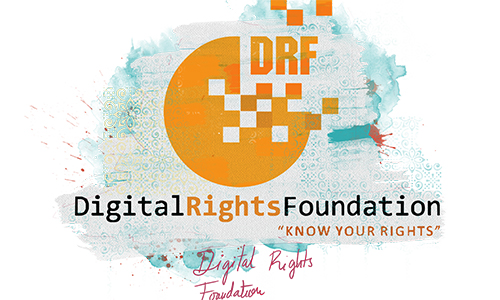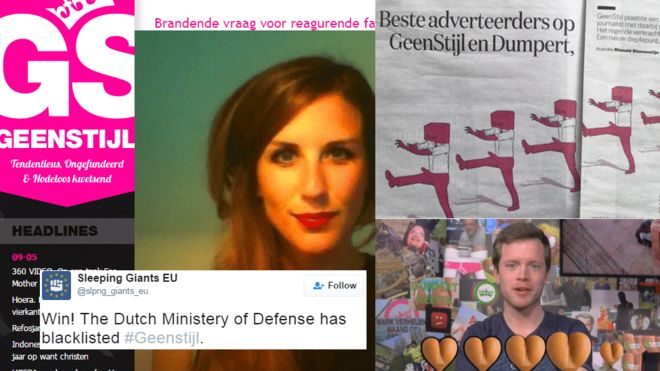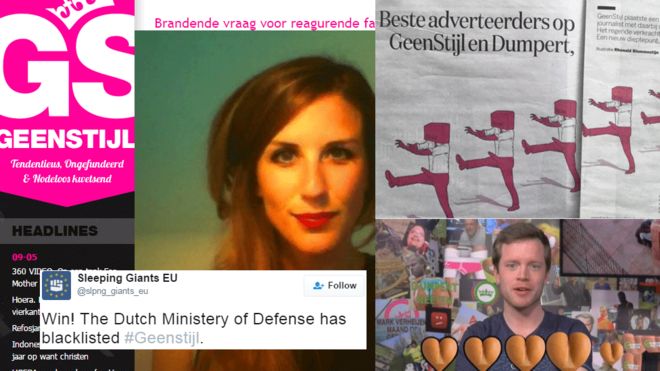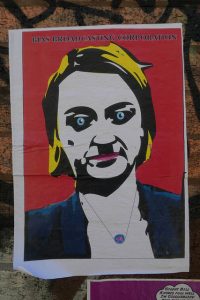3 Apr 2018 | Awards, Fellowship 2018, News
[vc_row][vc_column][vc_video link=”https://youtu.be/1Tgkm4m3W7c”][vc_column_text]The Digital Rights Foundation based in Pakistan have been nominated for its work on a cyber-harassment helpline which was set up a year ago and has supported more than a thousand women.
It is the first service of its kind in Pakistan and helps women report cyber-harassment regardless of where they live in the country. The helpline is important because it is an innovative and practical way of challenging women’s exclusion from online spaces and bolstering women’s rights to freedom of expression.
DRF was founded by digital rights activist Nighat Dad. As well as the helpline, the organisation provides training for women in online harassment, carries out advocacy work for a safe internet and raises awareness of digital security and censorship issues.
“Digital Rights Foundation envisions a place where all people, and especially women, are able to exercise their right of expression without being threatened,” said DRF. “We believe that free internet with access to information and impeccable privacy policies can encourage such a healthy and productive environment that would eventually help not only women, but the world at large”.
The impetus behind the helpline was the murder last summer of the Pakistani social media celebrity Qandeel Baloch who had a million followers and lived in a small provincial town in Punjab.
She was killed by her brother for her sexually confident posts on Facebook, posts which would be normal in Western countries. In small town conservative Pakistani society, dominated by religious leaders they caused outrage.
While Baloch’s was an extreme case, women online – who make up only 20 to 25% of the online population – routinely face bullying including revenge porn, blackmail, impersonation, non-consensual usage of personal information, privacy violations and other kinds of harassment. Women are afraid to report how badly they are treated and so react by withdrawing from online spaces.
This silencing of female voices and the exclusion of women from social media and other sites, which mirrors the exclusion of women from public spaces and public life generally in Pakistan, is a significant threat to freedom of expression.
 The support team includes a qualified psychologist, digital security expert, and trained lawyer, all of whom provide specialised assistance. The helpline helps women, children, human rights defenders, minority communities and anyone who might feel unsafe in digital spaces. It receives around 80 calls a month, and 60% of the requests for help are from women. Quite a few are also from men seeking advice on behalf of women.
The support team includes a qualified psychologist, digital security expert, and trained lawyer, all of whom provide specialised assistance. The helpline helps women, children, human rights defenders, minority communities and anyone who might feel unsafe in digital spaces. It receives around 80 calls a month, and 60% of the requests for help are from women. Quite a few are also from men seeking advice on behalf of women.
Staff ensure victims can make official reports of harassment to the authorities. As law enforcement offices where victims can file a complaint are only located in provincial capitals, it can be extremely difficult for victims in more remote parts of the country to initiate an investigation. To address this, the helpline has its own legal officer who can pursue cases on behalf of victims.
The helpline team produce reports every six months, which include an analysis of the kind of issues callers ring in about, and recommendations for action by Pakistani institutions responsible for online safety to make sure that women’s voices are heard.
“We at Digital Rights Foundation are honoured to be nominated for the Index on Censorship Freedom of Expression Awards.” said DRF. “The recognition means a great deal to us especially given the shrinking spaces for activists both online and offline. The Award will go a long way in lending legitimacy to our work and will amplify our dissent in favour of a free and safe internet”.
See the full shortlist for Index on Censorship’s Freedom of Expression Awards 2018 here.[/vc_column_text][/vc_column][/vc_row][vc_row full_width=”stretch_row_content” equal_height=”yes” el_class=”text_white” css=”.vc_custom_1490258749071{background-color: #cb3000 !important;}”][vc_column width=”1/2″][vc_custom_heading text=”Support the Index Fellowship.” font_container=”tag:p|font_size:28|text_align:center” use_theme_fonts=”yes” link=”url:https%3A%2F%2Fwww.indexoncensorship.org%2Fsupport-the-freedom-of-expression-awards%2F|||”][vc_column_text]
By donating to the Freedom of Expression Awards you help us support
individuals and groups at the forefront of tackling censorship.
Find out more
[/vc_column_text][/vc_column][vc_column width=”1/2″ css=”.vc_custom_1521479845471{background-image: url(https://www.indexoncensorship.org/wp-content/uploads/2017/05/2017-awards-fellows-1460×490-2_revised.jpg?id=90090) !important;background-position: center !important;background-repeat: no-repeat !important;background-size: cover !important;}”][/vc_column][/vc_row][vc_row][vc_column][vc_basic_grid post_type=”post” max_items=”4″ element_width=”6″ grid_id=”vc_gid:1522917764760-5edc93c3-6e5f-7″ taxonomies=”10735″][/vc_column][/vc_row]
28 Sep 2017 | Mapping Media Freedom, Media Freedom, News
[vc_row][vc_column][vc_column_text]

Dutch journalists launched a campaign to pressure advertisers into reconsidering advertising on sites that denigrate women.
Journalists are increasingly subjected to online harassment, but when the journalist is a woman misogynistic abuse quickly escalates into gender-based defamation and threats of sexual violence, according to a review of incidents reported to Index on Censorship’s Mapping Media Freedom project.
In the latest case, political editor Laura Kuenssberg, who works for the BBC, was provided with a security detail while she covered the Labour party conference in Brighton. Kuenssberg had been targeted with sexist abuse by individuals who were upset by what they saw as her anti-Labour and anti-Jeremy Corbyn bias.
“Sadly, Laura Kuenssberg’s experience is all too common across the 42 countries that Mapping Media Freedom monitors. Women are often targeted with threats of death and rape. As a society, we only hear about the most high-profile cases, which obscures the fact that this type of misogynistic intimidation is a widespread and pernicious obstacle to the performance of journalists’ professional duties,” Hannah Machlin, project manager at Index on Censorship’s Mapping Media Freedom project, said.
In July, Poland’s state-controlled news channel TVP INFO ran a critical piece about Dorota Bawołek, Brussels correspondent for Polsat, a private Polish TV channel, which led to online harassment.
Bawołek reported that she had received hundreds of insulting messages on social media after TVP INFO accused her of asking provocative questions with intent “to harm Poland”. In the messages Bawołek was called a “prostitute”, “anti-Polish manipulator”, “stupid” and “a snitch”.
In May, there were two cases that exemplify the seriousness of the threats that women journalists receive online.
In Ukraine, journalist Darina Synytska was threatened with rape and kidnapping on Facebook. Responding to a post in which Andriy Knyazev, a resident of Poltava, accused Synytska of passing the personal information of activists, three Facebook users — Ruslan Zarubin, Vitaliy Soloniy, Danylo Plakhov — left threatening comments. Other users were urged to “disappear” the journalist. The journalist union for the region issued a statement of support and solidarity of Synytska, and pledged to monitor the police investigation of the incident. The threats followed Synytska’s investigation of a conflict over a construction site in the centre of Poltava.
In The Netherlands, Loes Reijmer faced a storm of sexual harassment including threats of rape after a popular right-wing blog published her photo with the text: “Would you do her?” Reijmer had previously published critical columns about the controversial site GeenStijl, which has been routinely criticised for sexist content.
The GeenStijl post targeting Reijmer resulted in a public call on advertisers to stop advertising with the outlet backed by an open letter signed by over 100 women from the media and entertainment industries.
“Combating online threats against female journalists will remain at the top of my agenda as it is an integral part of the safety of journalists. There can be no freedom of the media without safety,” said the OSCE Representative on Freedom of the Media Harlem Désir.
“These cases highlight the seriousness of the threats women journalists face in the course of their work. These online campaigns are intended to silence and intimidate women who write critically. The solidarity of unions and a wider community reaction has been crucial in communicating that threats of sexual violence or otherwise are unacceptable,” Machlin said.[/vc_column_text][/vc_column][/vc_row][vc_row][vc_column][vc_basic_grid post_type=”post” max_items=”4″ element_width=”6″ grid_id=”vc_gid:1506602857542-6ca50442-57e4-6″ taxonomies=”8189, 7132″][/vc_column][/vc_row]
15 Jun 2017 | Digital Freedom, Mapping Media Freedom, Netherlands, News
[vc_row][vc_column][vc_column_text]

Dutch journalists launched a campaign to pressure advertisers into reconsidering advertising on sites that denigrate women.
A petition urging advertisers to withdraw their ads from provocative right-wing blog GeenStijl, shook up The Netherlands last month. About 150 women journalists and celebrities signed an open letter after a post that lead to a storm of sexual harassment and rape threats towards a female journalist. A few large companies and government institutions have so far pulled out their adverts.
The first time Loes Reijmer’s picture appeared on the front page of GeenStijl, in March 2017, she had just written a piece for her newspaper De Volkskrant about the reasons behind and the consequences of online sexual harassment of women.
In the article, she explained how blogs and social media groups are increasingly harassing women, for example by posting nude photos without their consent. She mentioned GeenStijl as the one Dutch example of a website thriving on sexist, racist and humiliating content.
GeenStijl, a popular and controversial website owned by Telegraaf Media Group, was quick to answer to Reijmer’s critical article. The next day her headshot appeared on the front page, accompanied by the text: ‘This is Loes Reijmer. Would you do her?’ A storm of sexist comments followed, including rape threats.
In April, daily NRC-columnist Rosanne Herzberger added fuel to the fire by writing a column questioning GeenStijl’s credibility. She went one step further and urged GeenStijl’s advertisers, some of the biggest companies in the country, to rethink spending their money on the site.
“The question is, which companies are making content like this possible?” Herzberger wrote. She mentioned companies like TUI travels, McDonald’s, Renault, Rabobank, Dutch theme park De Efteling and even the Dutch tax service and the Ministry of Defense.
GeenStijl has a reach of 1.2 million unique viewers per month, which makes it one of the biggest online media outlets in the country. Its videoblog Dumpert.nl has an even wider reach, 2.2 million views per month.
“Humiliating women is big business,” Herzberger stated firmly. Her column was widely spread and shared on social media, and lead to many companies to actually reconsider their advertising choices.
A couple of days later GeenStijl reposted the picture of Loes Reijmer with now the text: “Would you do her? Tell us how!”, followed by even more threatening comments by GeenStijl readers.
This is when dailies Volkskrant and NRC joined forces and published an open letter addressed to the advertisers. “Dear advertisers,” it read. “You are paying for a website where sexism and racism is the norm, not the exception.” About 150 women, from celebrities to journalists, signed the letter.
The campaign was inspired by the American organisation Sleeping Giant that keeps track of companies whose adverts appear on the alt-right website Bartbreit.
Journalists in The Netherlands are increasingly experiencing harassment and threats, a recently published investigation by the Dutch Union for Journalists (NVJ) showed. More than half (61 percent) of all (638) questioned Dutch journalists have been threatened physically or via social media at some point in their career, 22 percent even on a monthly basis. Amnesty International called the Dutch numbers “worrying”.
Volkskrant’s own ombudswoman, Annieke Kranenberg, believes it is a worrying trend. In an op-ed in De Volkskrant she stated that being a target of sexual intimidation and threats online could lead to self-censorship.
She asked several Volkskrant journalists about their experiences and many admitted they are suffering from self-censorship. “I always expect to receive negative comments, but the comments on GeenStijl are the worst, the most hateful you can get,” one journalist, who remained anonymous, told her. “The reality is that I do think twice before I write about something sensitive.”
Even the journalists that don’t have experience with self-censorship find themselves obstructed in doing their jobs. When they have been smeared by GeenStijl, they notice the articles in which they have been portrait negatively, keep coming up in the search engines. “I’m bothered by that,” one journalist said. “People Google your name before they say yes to an interview request.”
Online harassment against female journalists and women, in general, is not just a problem in The Netherlands, ombudswoman Annieke Kranenberg argued. “Worldwide it has an effect on press freedom,” she wrote. She referred to an essay by the American journalist Amanda Hess in 2014: Why women aren’t welcome on the internet. The amounts of sexist and threatening messages women receive online “are an assault on women’s careers, their psychological bandwidth, and their freedom to live online,” Hess stated.
OSCE’s media freedom spokesperson Dunja Mijatovic published a report on the topic in 2015. She concluded that female journalists are disproportionately affected by online hate speech. Mijatovic recommended that media companies themselves could play a role in changing this discourse by working on better on equality on the work floor. Media companies should also publicly stand up more against online hate speech, and they must ensure psychological and legal support for their journalists, Mijatovic argued.
GeenStijl has fired back to the open letter. They argue that dailies De Volkskrant and NRC have crossed a line by publishing such a threat and that by doing so they are themselves restricting freedom of expression.[/vc_column_text][/vc_column][/vc_row][vc_row full_width=”stretch_row_content_no_spaces” content_placement=”middle”][vc_column][vc_single_image image=”91122″ img_size=”full” alignment=”center” onclick=”custom_link” link=”https://www.indexoncensorship.org/2017/05/stand-up-for-satire/”][/vc_column][/vc_row]
27 Apr 2017 | Events
[vc_row][vc_column][vc_single_image image=”90019″ img_size=”full” alignment=”center” onclick=”custom_link” link=”https://www.hayfestival.com/”][vc_column_text]Christina Lamb, Helena Kennedy, Rachael Jolley and Joan Bakewell
In a tribute to the late frontline journalist Sue Lloyd-Roberts and her posthumously-published book, a panel of three exceptional and indefatigable heroes talk to Joan Bakewell about women reporting on war. Lamb is the Foreign Correspondent of The Sunday Times and the author of Farewell Kabul and The Girl from Aleppo. Kennedy is a world-renowned Human Rights lawyer. Rachael Jolley is editor of Index on Censorship.[/vc_column_text][/vc_column][/vc_row][vc_row][vc_column][vc_column_text]
When: Saturday 27 May 2017, 8:30pm
Where: Hay Festival venue Baillie Gifford Stage
Tickets: £8.30 from Hay Festival
[/vc_column_text][/vc_column][/vc_row]

 The support team includes a qualified psychologist, digital security expert, and trained lawyer, all of whom provide specialised assistance. The helpline helps women, children, human rights defenders, minority communities and anyone who might feel unsafe in digital spaces. It receives around 80 calls a month, and 60% of the requests for help are from women. Quite a few are also from men seeking advice on behalf of women.
The support team includes a qualified psychologist, digital security expert, and trained lawyer, all of whom provide specialised assistance. The helpline helps women, children, human rights defenders, minority communities and anyone who might feel unsafe in digital spaces. It receives around 80 calls a month, and 60% of the requests for help are from women. Quite a few are also from men seeking advice on behalf of women.


